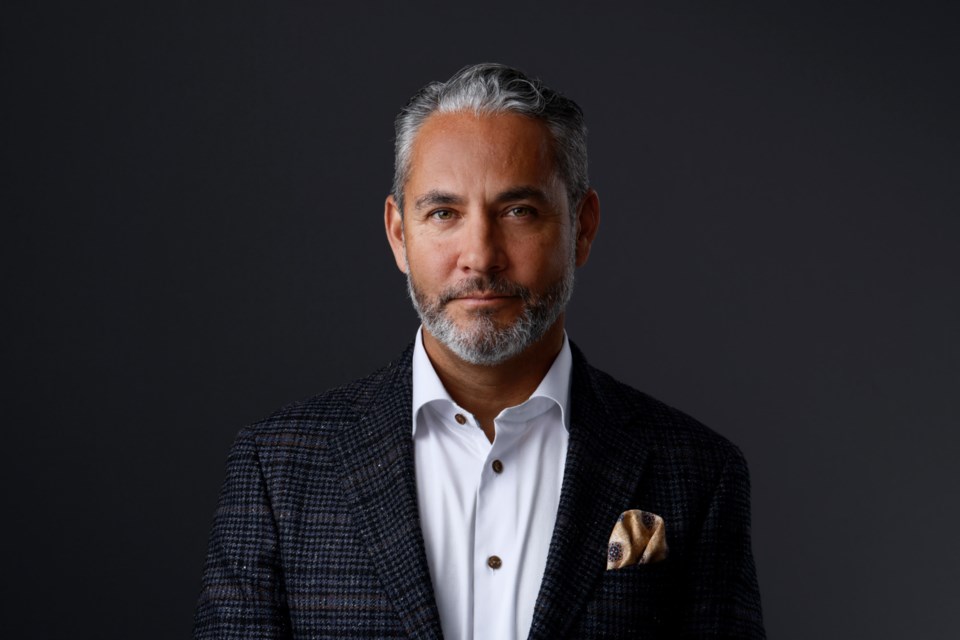JP Gladu’s life has been one of great achievements.
After graduating from Sault College’s Forestry Technician program in the early 1990s, Gladu went on to work in the forestry sector and is now a recognized corporate leader and supporter of Indigenous businesses.
The Ojibway man and Thunder Bay native was recognized Nov. 26 for his work with a Premier’s Award for excellence in business.
Premier’s Awards recognize the outstanding contributions Ontario college graduates make in the province and throughout the world.
More than 100 graduates are nominated for a Premier’s Award each year, recognizing achievements in areas such as health care, science, technology and engineering, community services, the arts, business and the skilled trades.
“It’s a wonderful acknowledgement. I’m so grateful for it. It’s been beautiful. It’s nice to be able to contribute and work hard and then be recognized for it. I’m incredibly grateful. It’s a blessing,” Gladu said in a phone interview with SooToday.
Gladu, 51, currently resides in Sand Point First Nation, two hours north of Thunder Bay.
He is the founder and principal of Mokwateh and a Macdonald-Laurier Institute Senior Fellow.
Mokwateh is an Indigenous-owned team of consultants that advises the Forest Products Association of Canada and helps support Indigenous businesses.
As an advocate for the Indigenous economy, Gladu was the Canadian Council for Indigenous Business president and CEO for eight years. He helped create the Tools and Financing for Aboriginal Business program, programs for young Indigenous entrepreneurs, and a financing program for Indigenous businesswomen.
Billions of dollars have been invested into Indigenous businesses because of Gladu’s Procurement Champions plan.
Gladu has over 30 years of experience in the natural resource sector.
He currently serves on the board of Suncor, Institute for Corporate Directors, Broden Mining, First Nations Major Projects Coalition Advisory Centre, Canada’s Forest Trust as well as BHP’s Forum for Corporate Responsibility committee.
He served as chancellor of St. Paul’s University College Waterloo from 2017 to 2020. Gladu’s achievements have been recognized by the Public Policy Forum as a prestigious 2024 Honouree.
Even with all of these organizations keeping him busy, forestry is still in his blood.
“My dad was a logger. I was a huge outdoor guy and I still am to this day," he said.
"There was a college forestry program in Thunder Bay but I wanted to go out on my own as a young person and explore going to school and living on my own. So, my mom and my sister drove me to Sault Ste. Marie. I didn’t know a single soul in the Sault when I moved there in August 1991, but it all worked out.”
He graduated from Sault College’s Forestry Technician program in 1993.
“It was an opportunity to live and learn outside my regular environment, meet new people and build new friendships. It was my first step outside my comfort zone in Thunder Bay. It was scary at first but rewarding. It helped me grow as an individual.
"I remember Sault College. It resonated with me. It was a good fit. I got into hockey and made really good friends with my fellow forestry students,” Gladu recalled.
He worked on forestry projects across Canada after graduation, but not all of his memories from that period in his life are pleasant.
He worked as an Aboriginal Forestry Advisor for the BC Ministry of Forests in Cranbrook, B.C.
“I found it hard to fit in there. I found the city to be very racist,” Gladu said.
Deciding to further his education, Gladu earned an undergraduate degree in forestry from Northern Arizona University, an executive MBA from Queens University, an Institute of Corporate Directors designation (ICD.D) from the University of Toronto’s Rotman School of Management and, earlier this year, an honorary doctorate in law from Carleton University.
When Gladu graduated from Sault College, Indigenous-owned businesses were barely on the radar.
Times have changed.
“The Indigenous gross domestic product contribution to Canada is around $50 billion now,” Gladu said.
“I’m on the board at companies like Suncor as an Indigenous person, and there are other Indigenous directors as well at other large companies. It shows that we’re significant contributors at the highest levels in Canada. That’s the best untold story in this country and an inspiration for young people in our Indigenous communities.
"They see Indigenous people at the highest level and that will inspire them to think ‘if they can do it, I can do it.’”
Gladu sees that as part of putting the Truth and Reconciliation Commission of Canada’s 94 Calls to Action into effect.
Call to Action 92 urges Canada to “ensure that Aboriginal peoples have equitable access to jobs, training, and education opportunities in the corporate sector, and that Aboriginal communities gain long-term sustainable benefits from economic development projects.”
“There’s been momentous change. It’s not perfect. We’re still working at it and my career is largely focused on Number 92, a call to action in business. Indigenous and non-Indigenous leaders subscribe to the importance of a strong Indigenous economy. There's been a huge change,” Gladu said.
Along with his success in the boardroom and the recognition he has received for his work on behalf of Indigenous-owned businesses, Gladu said he stays in touch with his roots, loves the land and in the past few days harvested moose with his daughter.
He said that he looks forward to many more years of supporting Indigenous-owned businesses with Mokwateh and as a member of several boards.
David Orazietti, Sault College's president, said JP Gladu’s journey showcases the incredible impact that a college education can have.
"His dedication to advancing Indigenous leadership and driving economic development is inspiring. JP’s success story exemplifies how our graduates go on to make significant contributions not just locally, but nationally and globally.
"We are extremely proud of JP and celebrate his continued success and well-deserved recognition,” Orazietti said via email.
